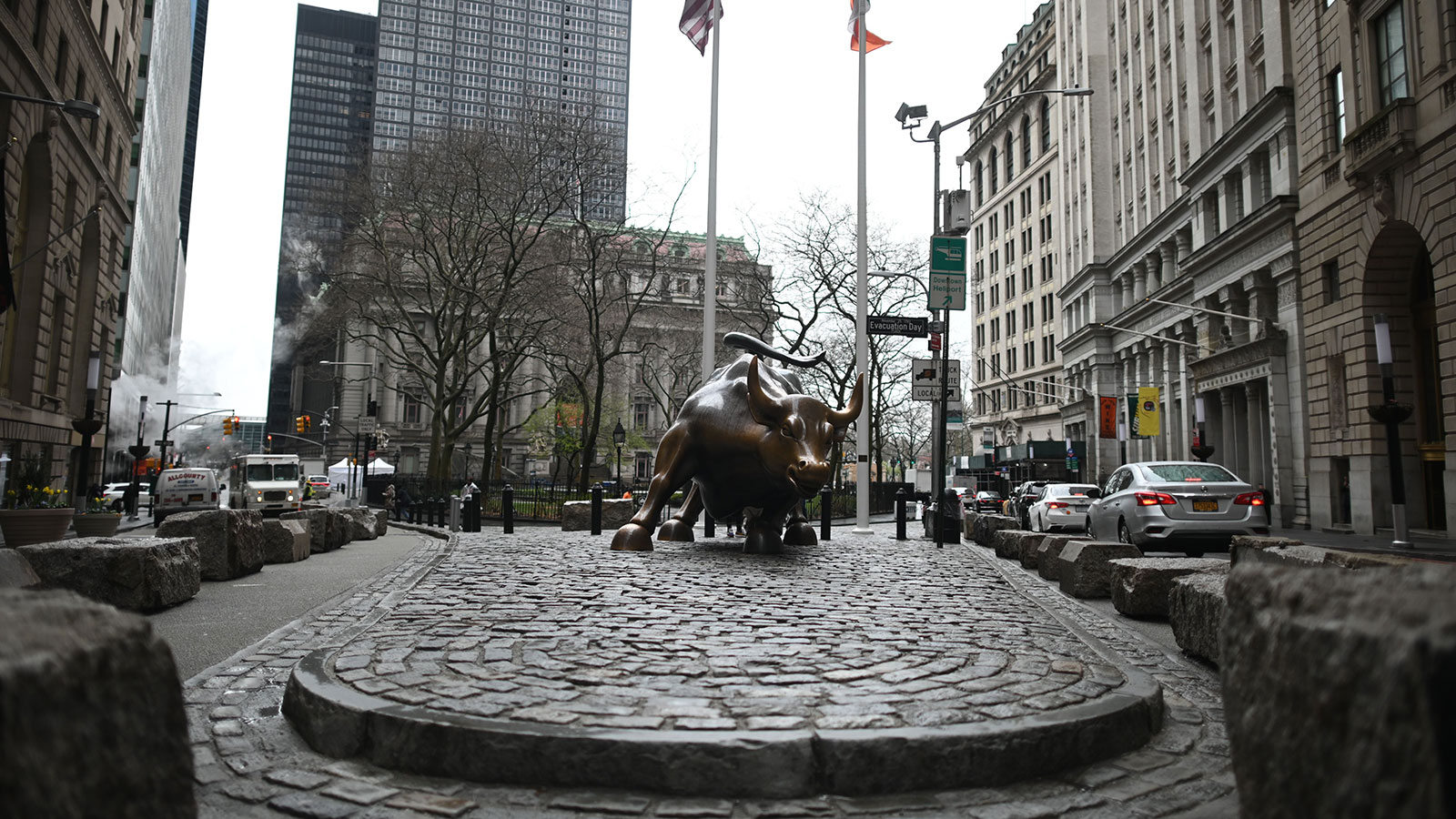This piece has been updated.
For years, sustainable investing was viewed with suspicion. Could portfolios that avoided oil and gas companies, tobacco, and other profitable but controversial industries have high enough returns to satisfy investors? Would they survive during times of market upheaval?
The COVID-19-fueled financial crisis is proving the naysayers wrong. Sustainable funds — dubbed Environmental, Social, and Governance (ESG) funds in industry parlance because they screen investments for various ethical and social standards as well as transparent governance practices — have been outperforming conventional funds this month. With a crash in oil and stock prices battering the value of financial assets across the board, ESG funds appear to be weathering the storm better than the traditional funds that might previously have been considered safer bets for investors.
According to a Bloomberg analysis, the average ESG fund fell by about 12 percent this year. That’s a big tumble, but it’s just half the decrease seen by the S&P 500 Index over the same period. A separate analysis of about 200 U.S. funds by Morningstar, a financial services firm, also found that, although ESG funds have taken a hit, they’re faring better than their conventional counterparts and are overrepresented in the top quartiles of their peer groups, in terms of their performance.
“If you combine ESG with [financial] expertise, you often have outperformance,” said Cary Krosinsky, a professor at Yale University and an expert on sustainable finance. “That’s unquestioned.”
Surveys indicate that millennials are interested in using their money to do good. As they’ve inherited wealth, sustainable investment funds have moved into the mainstream. $30 trillion of the world’s assets are now in ESG funds. Just last year, money moved into sustainable funds quadrupled to $20.6 billion compared to 2018. That rapid growth occurred during a bull market when the economy was booming and stocks were soaring across the board. Most ESG funds are now facing a bear market for the first time: As investors panic, stock prices drop precipitously, and there seems to be no clear end in sight to the pandemic.
For now, ESG funds are mostly gaining popularity among institutional money managers and the wealthy. According to a recent survey, just 2.9 percent of 401(k) plans have one sustainable fund. But as interest in ESG funds grows, middle-class investors are also beginning to incorporate ESG funds into their retirement plans.
Proponents of sustainable funds have long made the argument that, because they screen for environmental sustainability, social responsibility, and good governance, ESG funds are more stable and can make more money for investors in the long run. (Disclosure: Grist has an ongoing advertising and sponsorship relationship with Green Century Funds, which is an ESG.) But analyses of ESG funds are somewhat complicated by the fact that financial institutions do not have a universally accepted definition for ESG.
In the U.S., in fact, portfolio managers can apply the ESG label indiscriminately. As a result, some ESG funds have been accused of “greenwashing” — peddling misleading claims about a fund’s adherence to ESG values. Because of this lack of uniformity, Krosinsky and others caution against reading too much into the success of such a diverse pool of investments.
Still, they agree that sustainable funds on average are performing better than conventional funds, giving credence to the growing consensus that so-called socially responsible investing can work out for investors’ bottom lines.
Research conducted even before the current crash supports the idea that ESG funds do better than traditional funds during times of market volatility. A 2019 white paper by BlackRock, the world’s largest asset manager, noted that ESG funds were more resilient during downturns, and a Morningstar analysis found that, when the S&P 500 fell by more than 7 percent during the first week of February 2018, two-thirds of ESG funds outperformed their peers.
The current economic crisis has been fueled by both demand and supply shocks. On the one hand, as governments decree widespread business closures and ask people to stay home, demand for goods and services has tanked across the board. Simultaneously, Russia and a group of other oil-producing countries could not come to an agreement about cutting back oil and gas production in response, leading to a glut in the energy supply despite the decreased demand.
Some ESG funds have completely avoided or limited their exposure to fossil fuels and other industries heavily reliant on oil and gas (like airlines and cruise ships), insulating them from collapses in the price of oil, as well as that of many stocks. It’s one reason why ESG funds may be doing better compared to their more conventional peers.
“Those investment funds that were more exposed to oil and gas would have greater shock,” said Gabriel Thoumi, the director of financial markets at Planet Tracker, a nonprofit think tank working on developing sustainable financial markets.
Thoumi added that ESG funds are also more likely to include companies that are being transparent about their supply chain. When companies provide data about their supply chain and third-party contractors, investment firms can do a better job of identifying risks that may affect the company’s core business. As a result, portfolio managers designing ESG funds may have screened out companies that are more vulnerable to oil price fluctuations and breakdowns in the manufacturing and flow of products — precisely the kind of disruptions that can happen during an unprecedented global pandemic.
“You can only manage the risks that you can measure and monitor,” said Thoumi. “By integrating this supply chain data into the management of investment funds, portfolio managers can improve investment performance, because with this deeper dataset they have greater information to draw from.”
While some analysts fear that a full-blown economic recession may scare investors away from sustainable funds and resort to relying on tried-and-true investment funds, there’s no indication yet that ESG investors are running for the hills.



